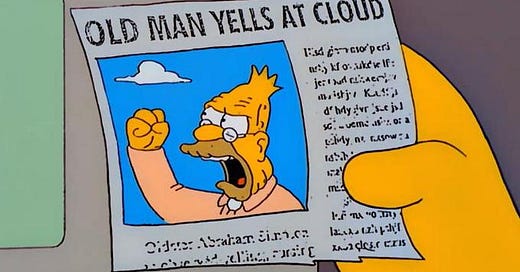I feel like an old man every time I discuss travels because back in my day things were very different. I’d like to set out immediately that I don’t think things were necessarily better in the olden days. What I am interested in is the impact, current and potential, that changes in the travel rules are having on tactics.
We’ll look at that in part 2. First, some thoughts on how tactics develop.
How Tactics Change
I’m very interested in how tactics develop and change in sports. There are 3 main sources, and as you’ll see they’re also quite interlinked.
Philosophers
The most obvious source of tactical change is the coach who sits down and decides how they want their team to play. There are countless examples of these immortalised in books and movies for their genius and vision, and a lot of people start coaching aspiring to be one of these pioneers. The best example here is Pep Guardiola, who revolutionized the tactics of football with a fanatical emphasis on possession, driven by his beliefs on how the game was best played.
Analytics
Where Guardiola’s tactical revolution in football was driven essentially by a moral belief in the correct way to play football, analytics takes data and tries to tell you what is the most effective way to play. Maybe the most famous example of this is analytics clearing showing that the 3 point shot in basketball is worth more on a per-possession basis than a 2 point jump shot, something which is so glaringly obviously true that it feels silly to write in 2022, but took generations to convince coaches, fans and players that it was the best approach.
As Ultimate makes some tentative first steps into using data to analyze the game, a warning that it’s not always as simple to generate valuable insights from data as it can look in retrospect.
Rule Changes
Some rule changes have an obvious impact on the tactics of a sport e.g. the introduction of the 3 point shot in basketball as mentioned above. Not all rule changes have as clear and dramatic effect, some subtler rule changes can nudge a style of play into more efficiency, or reduce the effectiveness of another style. This is what we’ll look at with travels. First, a return to Guardiola’s possession based football. As mentioned, this stemmed essentially from his belief in this style being the best way to play, however this was also given an enormous boost by a change to the offside law shortly before he started his coaching career.
Without going into too much detail on the minutiae of the changes, a change to favour attackers meant defenders were less confident in an offside call bailing them out. As a natural reaction, defenders positioned closer to their own goal when they didn’t have the ball. This drop effectively made the available space bigger for the team with the ball. This extra space was perfect for a coach and a team that wanted to keep hold of the ball above all else.
Rule Changes in Ultimate
In all sports there is the rule as is written, and how the rule is actually refereed. In a refereed sport there is a central bodies training a pool of referees and/or communicating to those referees how it wants certain situations handled. Obviously there are still discrepancies between referees, or even within the way any individual referee calls things, but there is at least a clear mechanism to allow the sport to adopt a particular interpretation.
In Ultimate we don't have this. The pool of referees is huge because it’s everyone that is playing, and with infrequent opportunities for competitive play it's very difficult to get a lot of 'reps' in as a ref.
For Ultimate the way rules are interpreted comes from the culture you are part of. You learn what is an isn't acceptable from what you are seeing and experiencing. With the rise of streaming over the past decade there are now endless opportunities to see how different situations are handled during games, and more chance for a collective forming of opinions on what is a good call to make, and what is not.
Back in my day, what was considered a good travel call appears very different to what current players want to call. More on that next.



